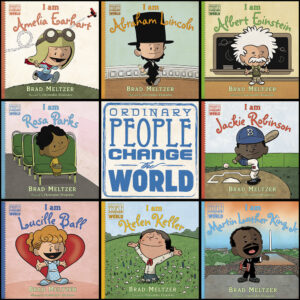This week, our students will continue to learn what democracy means at our school and also what it means as an Albertan and Canadian citizen. People have died throughout history all over the world to obtain and protect our right to vote. With young students we often explain that most people have to think about their ‘heart vote’ as well as their ‘dollar vote’ and that the two are interconnected. Our Div 2 students did a student vote in their classroom after being asked to research the key platforms of each of the provincial parties found on the ballot card.
–
Our teachers have been trained to remove their own bias when teaching politics but students of all ages always come to school with many of their own strong opinions and convictions based on what they hear from their parents and peers. We try to provide a safe space for respectful debate and hope that our lessons lead to an understanding that any topics falling under the umbrella of democracy and politics are rarely ‘black-and-white’ or have straightforward answers.
–
Parents have enormous influence over their children’s political beliefs. We encourage parents to avoid simply telling their children that they should always vote a certain way or to speak negatively about the candidates on a personal level. (If you would be ashamed to hear your child talk to a peer with disparaging or derogatory remarks, then please consider how you might talk about a political candidate in front of them. The words and emotions of adults DO come out in unexpected ways on the playground). The key is to do your own research, understand politics from multiple perspectives, and exercise your right to vote!
–
Instead, here are some strategies you can try that may prompt deeper Changemaker discussions at home:
–
1. Talk about the ‘heart vote’ and the ‘dollar vote’ and how they connect. When discussing politics, it’s important to highlight your family values and how they relate to the top platform issues. It’s also important to explain that some money is needed to provide the necessities of modern living in our country and that important ‘heart’ causes sometimes require money to be effective. How the government collects and distributes money can also inform how we vote.
–
2. Focus on what makes a good leader. Rather than attacking the candidate on a personal level, consider asking your children what makes a good leader. When we had this discussion, our students came up with words such as ‘compassionate’, ‘fair’, ‘smart’ and ‘strong’.
–
3. Avoid “good” versus “bad”. Focus the conversation around the platforms and issues in current events and different leadership styles. You can explain that it’s important to learn how to respectfully debate, do your own research and make informed choices but that there will never be one perfect candidate.
–
4. It’s ok to disagree. We all know that politics can get heated. Even those who love each other sometimes get very angry around politics. It’s important that we don’t dehumanize those we disagree with. It’s ok to agree to disagree and find common ground somewhere else.
–
5. Give examples of strong leaders and Changemakers. Talk about the strong leaders and Changemakers you admire and explain why you feel that way about them. Our students already have heard names such as Martin Luther King, Jr., Winston Churchill, Eleanor Roosevelt, Harriet Tubman, Nelson Mandela, Malala Yousafzai, Walt Disney and many more notable humans in history. Encouraging children to explore what makes these people special and/or great leaders will help them remember that, while the government plays an important role in society, the ordinary individual seeking positive change can sometimes make the greatest impact of all.
–

